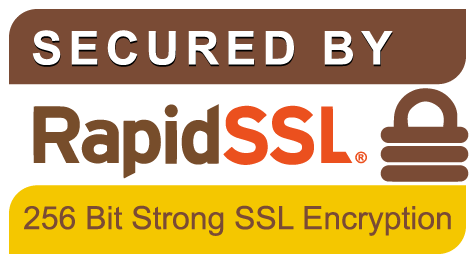
ONLINE MORTGAGE LOAN COMPARATOR COMPARE 20+ BANKS IN 2 MINS ONLY A SIMPLE ONLINE FORM TO FILL OUT FREE AND WITHOUT OBLIGATION
COMPARE 20+ FINANCIAL INSTITUTIONS IN 2 MINUTES
WITH ONLY ONE APPLICATION!
Whether it is for a new purchase, a pre-approval or a renewal, a mortgage broker can get you the best loan with the lowest interest rate, according to your needs and criteria.

COMPARE 20+ BANKS IN ONLY ONE STEP FOR YOUR MORTGAGE!
Fill out the form below and a mortgage broker from your area will rapidly contact you to help you find the best possible offer.



What debts should you refinance? Smart Mortgage Refinancing
What debts should you refinance? Is mortgage refinancing a solution for you? How does refinancing your mortgage work? Is debt refinancing still possible? What is the calculation for refinancing your debts? What are the advantages and disadvantages of mortgage refinancing?
Reminder: What is mortgage refinancing? Is this an option for you?

To know the equity in your home (or equity), just determine its market value, then subtract what you have to pay on your mortgage.
Thus, the net worth of a newly purchased home will be very small, the amount of the mortgage being generally rather high. On the other hand, your mortgage repayments over 15 or 20 years will significantly increase the equity in your home.
You can refinance the remaining mortgage on your home using the equity value of the house as collateral.
In fact, for a financial institution, the equity of your home is considered to be cash.
You can access a portion of the equity of your home and use that amount as you see fit; for example to pay off your debts.
The Bank of Canada has established the maximum mortgage refinancing available to you at 80% of your property’s net worth.
It can be profitable for you to consolidate several loans with high-interest rates (credit cards, personal loans …) and refinance them at a lower interest rate.
When is mortgage refinancing profitable? For which debts?
When interest rates are relatively low and the real estate market tends to drive up the market value of your home, it can be very interesting to increase the mortgage on your home to pay off your high-interest debts.
Types of debt for which mortgage refinancing can be profitable
If you are having trouble repaying your multiple debts, mortgage refinancing may be beneficial for you.
However, it is not possible to refinance all types of debt. Generally, only unsecured debts can be included in a mortgage refinancing.
In order to inform you and to help you determine if refinancing your debts is a suitable option, here is a list of debts (all unsecured) that can generally be refinanced:
- Credit Cards: It is very common for credit card debt to be the main reason for applying for mortgage refinancing
- Personal loan for which you had no guarantee
- Unsecured loans issued by a credit union, associated with excessive credit card debt
- Debt linked to a vehicle repossession for non-payment
- Gas card
- Non-government or private student loan
- Unpaid cellular bills from a previous service provider
- Debts from a public service that you no longer use
- Some medical bills
Not all medical bills qualify but a few may be included in a mortgage refinance.
If excessive medical bills are the main reason you want to refinance your debts, it would be wise to seek the advice of a mortgage professional such as a mortgage broker.
Note that financial institutions, as well as various lenders and creditors, are under no obligation to refinance your debts. That’s why the skills of a seasoned mortgage broker can help you find a solution to ease the financial burden.
Do not hesitate to contact an experienced Mortgage Broker, a partner of Best Mortgage Quote, using our online platform.
By filling out the short online request form on this page, you will receive, in less than 48 hours, a response from an experienced mortgage broker in your area.
Indeed, upon receiving your request, the Best Mortgage Quote team will search for you, at no cost and without any obligation, the professional mortgage broker whose area of expertise, experience, skills, track record, and qualifications are tailored to your needs and expectations.
What is the calculation for a mortgage refinance?

In essence, mortgage refinancing allows you to take advantage of cash that you could obtain in other ways at such a favorable interest rate.
Calculating a Mortgage Refinance Benefit
| Consider the following refinancing calculation: | |
| The market value of your home | $225,000 |
| The balance of your mortgage loan | $120,000 |
| Mortgage interest rate | 5% |
| Amortization period | 25 years |
| Debts | $17, 000 (total of 2 credit cards) at 18 % interest
$15,000 (credit line) at 9% interest Total of $47,000 |
You have decided to refinance your home at 80%, the maximum value allowed.
| Calculation of your loan limit | $225,000 (market value) x 80% = $180,000 |
| $ 180,000 – $120,000 (mortgage balance) = $60,000
|
|
| Your new mortgage will be | $ 120,000 (the old mortgage balance)
+ $60,000 (your new loan) $180,000 (your new mortgage balance)
|
The total of your debts to be repaid:
Amount from your mortgage refinancing – Payment of debts = Balance
$ 60,000 – $ 47,000 = $ 13,000 (remaining balance)
This calculation to refinance your mortgage keeps the initial amortization.
Of course, the mortgage payments are increased by the new mortgage balance.
You do not have to add $60,000 to your mortgage. You can borrow only the amount to refinance your debts to make the transaction more advantageous.
When is refinancing your debts not beneficial?
Here is another example that demonstrates that it is not always beneficial to refinance your debts.
Feel free to fill out the FREE form on this page to obtain the services of a mortgage broker in your area that can best meet your needs according to your particular situation.
| Market value of your house | $200,000 |
| Balance of your mortgage loan | $120,000 |
| Mortgage interest rate | 5% |
| Amortization period | 25 years |
| Debts | $17,000 (2 credit cards) at 18% interest $15,000 (credit line) at 9% interest$15,000 (auto loan) at 8.5% interest Total of $47,000 |
| Your monthly payment | $2,280 (including your mortgage payment of $700/month) |
You have decided to refinance your home at 80%, the maximum value allowed.
|
Calculation of the limit of your loan |
$200,000 (market value) x 80% = $160,000 |
| $160,000 – $ 20,000 (mortgage balance) = $40,000 | |
|
Your new mortgage will be |
$120,000 (the previous mortgage balance) + $40,000 (your new loan) $160,000 |
According to this calculation, the authorized limit for your loan would be $ 40,000 while the total debt is $ 47,000. What’s more, your mortgage would now be $ 160,000 (rather than $ 120,000). Your mortgage refinancing would not be advantageous.
Moreover, refinancing your debts entails various costs that you must take into account. We list these a little further.
More information on calculating mortgage financing here.
The advantages & disadvantages of refinancing a mortgage:
The benefits of refinancing your debts
Here are the benefits of taking advantage of the low-interest rate to refinance your debts:
A single monthly payment
Since your mortgage payment and other debts are grouped together, you only have one monthly payment to make.
A much lower interest rate
Monthly payments of your loans at 15%, 18% or 20% interest will be reduced to 3% or 5%.
Invest the cash obtained from your mortgage refinancing
You can use the money from your mortgage refinancing to pay your new loan faster which will eliminate your debts.
You can also make an investment such as in the real estate market, in your RRSP, etc.



